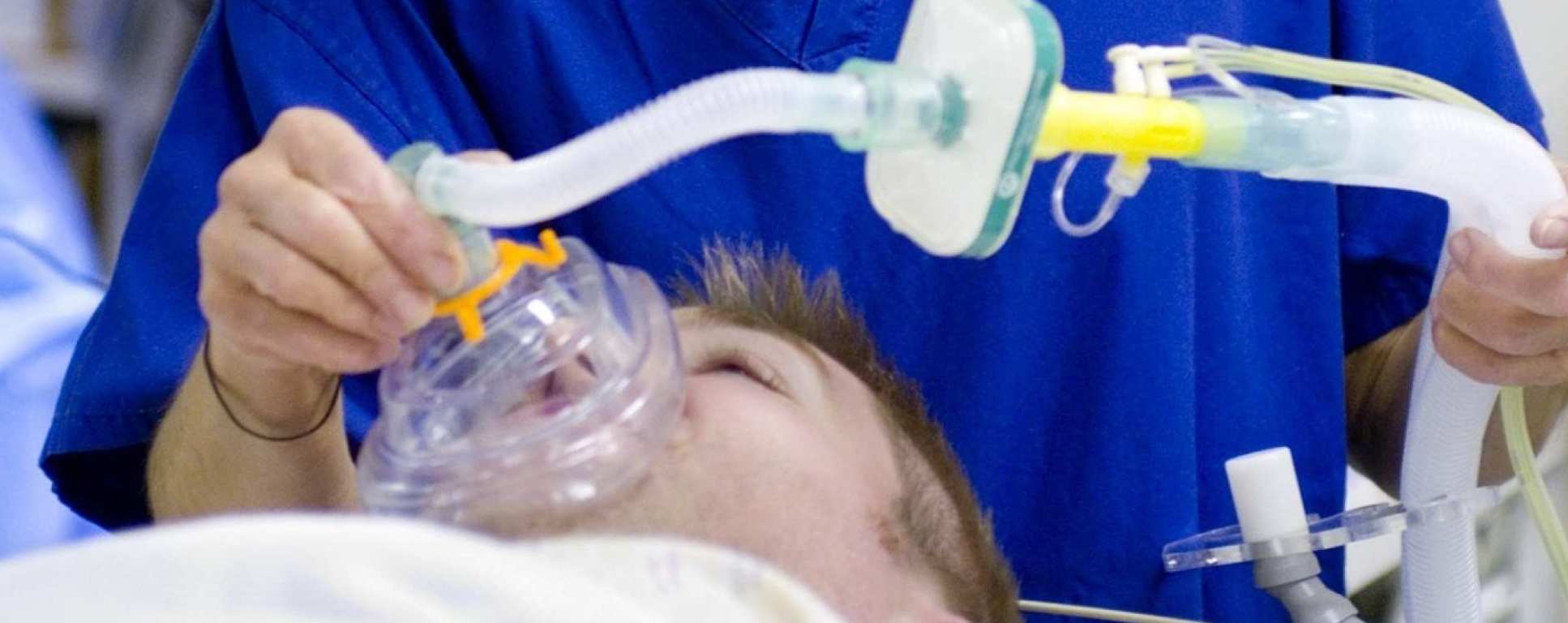
Contact
Anna Aston and Steffi Klier
+44 (0)20 3315 8816
Lab/office contact number:
+44 (0)20 3315 8495
Anaesthetics and neuroprotection
We are the first to discover the neuroprotective efficacy of anaesthetics and noble gases, and utilising a novel neonatal asphyxia model in rats, our studies yielded valuable insight into the neuroprotective mechanisms of xenon, and discovered the great clinical potential of xenon in perinatal asphyxia/hypoxic-ischaemia encephalopathy, affecting approx. 5/1000 termed birth with high mortality and devastating morbidities. Our key findings facilitated the clinical trial on xenon combined mild hypothermia in hypoxic-ischaemia encephalopathy (HIE) infants (https://www.npeu.ox.ac.uk/toby-xe). We are currently investigating the organ protective effects of another noble gas Argon.
Organ protection and transplant
While continuing research in neuroprotection, we started to investigate the protective effects of anaesthetics on other organs such as the kidneys. We found that xenon protects the kidney from ischemia-reperfusion injury, and significantly improved short-term graft function and long-term graft survival, by up-regulating the expression of hypoxic inducible factor (HIF). This research prompted the Medical Research Council, London, to consider the role of this novel strategy in kidney transplantation and the work is now entering the clinical study phase subjected to a funding application. Moreover, our findings on xenon’s stimulatory effect on HIF and its downstream protein erythropoietin (EPO) had constituted the key pieces of evidence to prompt the World Anti-Doping Agency (WADA) to include xenon and argon into the WADA Prohibition List (http://www.ukad.org.uk/news/article/xenon-and-argon-added-to-the-2014-prohi). We are now studying kidney, liver and lung graft protection from bench to bedside.
Postoperative delirium (POD) and cognitive dysfunction (POCD)
We conducted research into the molecular mechanisms of cognitive deterioration following surgery and anaesthesia in the elderly. We were the first group to report that neuroinflammation, specifically pathological hallmarks characteristic of Alzheimer’s disease, contributed to this post-surgical complication. This work has yielded publications in several high impact factor journals and was reported in mainstream media (http://www.alzheimers.org.uk/site/scripts/news_article.php?newsID=1828, http://www.telegraph.co.uk/news/science/science-news/7969549/Alzheimers-risk-could-be-increased-by-surgery.html), as well as being granted a patent (US Patent No. 61/305500). With an ageing population and a surge in the number of operations being performed on the elderly, our knowledge of POD and POCD pathologies and mechanisms would hopefully enable the development of more efficacious treatment.
Anaesthetics and cancer cell biology
The prominent effects of anaesthetics on hypoxia-inducible factor (HIF) have inspired our group to investigate whether anaesthetics could influence cancer behaviour and recurrence, given that HIF is a powerful molecular regulator of cancer proliferation, metastasis and chemotherapy resistance. We found the routinely used inhalational anaesthetic isoflurane increased cancer cell growth and migration in vitro, coinciding with upregulated expressions of HIF proteins. Collectively, our timely research provided convincing pieces of evidence at the biochemical level, and has encouraged us to explore deeper into the mechanisms underlying the cancer-and-anaesthetics phenomenon and prompted a clinical investigation.
We are also embarking on a perioperative clinical trial looking at intravenous lidocaine infusion during bowel cancer surgery for cancer outcomes such as cancer recurrence, cancer-specific quality of life and health economic impact for the NHS. We are currently conducting a feasibility study to pave the way for a future definitive trial. We are also looking at clinical exploratory outcomes for lidocaine’s potential mechanism that may influence cancer recurrence in actual patients. More information can be found here.
Future research into the differential actions of anaesthetics on different cancer cells has great potential to influence the clinical practice of anaesthetics; depending on the type/malignancy of cancer, different anaesthetics, techniques and perioperative strategies will be employed to minimise recurrence following tumour resection.
Information
- The National Institute of Academic Anaesthesia (2018-present)
- BJA/RCoA project grants (2018-present)
- BOC Chair grant (2018-present)
- NIHR (2021-2024)
- ESAIC (2022-2024)
Mr. Abdulrahman Alsharif

Ms Lingzhi Wu

Dr. Qizhe Sun

Dr. Qian Chen

Dr. Enqiang Chang

Researchers
Professor Daqing Ma
/prod01/channel_3/media/images/people-list/D-Ma.jpeg)
Professor Daqing Ma
Professor of Anaesthesia
Dr Hailin Zhao
/prod01/channel_3/media/images/people-list/2016-01-11-12-54-38--tojpeg_1479305156275_x1.jpeg)
Dr Hailin Zhao
Research Associate
Dr. Chen Pac Soo
/prod01/channel_3/media/images/people-list/Chen-Pac-Soo.jpg)
Dr. Chen Pac Soo
Honorary Senior Lecturer
Dr. Raha West
/prod01/channel_3/media/images/people-list/g25gV8w1_400X400.jpeg)
Dr. Raha West
Clinical Research Fellow
Dr. Yiwen Zhang
/prod01/channel_3/media/images/people-list/Yiwen-Zhang.jpg)
Dr. Yiwen Zhang
Dr Marcela P. Vizcaychipi
/prod01/channel_3/media/images/people-list/781678f5-8f0a-42e1-b7c3-a6aace7096c2-1-201-a_1593475343081_x1.jpeg)
Dr Marcela P. Vizcaychipi
Honorary Clinical Senior Lecturer